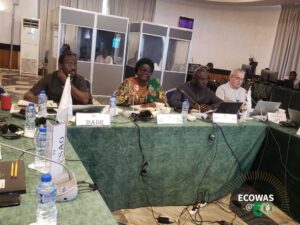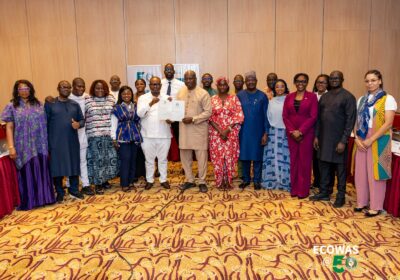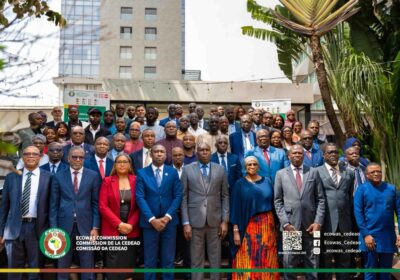ECOWAS Agriculture Remains A Cornerstone as RAAF Convenes 12th Strategic Session in Lomé By Raymond Enoch
In a pivotal gathering that could shape the future of West Africa’s agricultural landscape, the Strategic Orientation Committee of the ECOWAS Regional Agency for Agriculture and Food (RAAF) convened its twelfth high-level session in Lomé, Republic of Togo.
The session, held on May 2, 2025, focused on evaluating the agency’s 2024 activity report and the financial performance of agricultural programs across the region.
Chaired by Mrs. Massandjé Toure-Litsé, ECOWAS Commissioner for Economic Affairs and Agriculture, the committee brought together key decision-makers, technical experts, and regional stakeholders to assess the pace and quality of implementation of the ECOWAS Agricultural Policy (ECOWAP) — a cornerstone strategy for regional food security and agricultural transformation since its inception in 2005.
The Strategic Orientation Committee, established in 2013 alongside the creation of RAAF, plays a critical governance role by steering policy direction, prioritizing funding, and ensuring the alignment of regional agricultural initiatives with the socio-economic aspirations of the 15-member ECOWAS bloc.
“This twelfth session is not merely a review exercise. It is a litmus test of our collective commitment to delivering sustainable agricultural systems, empowering rural communities, and building resilience against climate-related shocks,” said Mrs. Toure-Litsé in her opening address.
The committee reviewed the achievements of 2024, including regional coordination of food security projects, climate-smart agricultural practices, capacity-building for farmers, and the promotion of value chains. The financial execution report detailed both successes and gaps in fund disbursement and project completion, prompting calls for tighter monitoring, enhanced accountability mechanisms, and increased private-sector engagement.
Among the focal points was the ongoing regional strategy to reduce dependency on food imports and increase intra-African trade in agricultural products — a priority under the broader African Continental Free Trade Area (AfCFTA) framework.
Also on the agenda were collaborative initiatives with international donors, such as the European Union, USAID, and the World Bank, which have supported RAAF in areas like digital agriculture, irrigation infrastructure, and women and youth empowerment programs.
Stakeholders emphasized that the gains made in 2024 must be consolidated and scaled up in 2025, especially in the context of growing food insecurity triggered by conflict, climate change, and supply chain disruptions.
The Lomé session concluded with a renewed mandate for RAAF to strengthen intergovernmental collaboration, accelerate project implementation, and ensure that agricultural investments yield tangible benefits for ECOWAS citizens — from rural farmers to urban consumers.
As the region navigates a critical decade for food sovereignty and economic integration, the outcomes of this strategic review are expected to guide future policy adjustments and financial commitments at both national and regional levels.
For the West African agricultural sector, the message is clear: implementation must move beyond planning to measurable, people-centered results.







